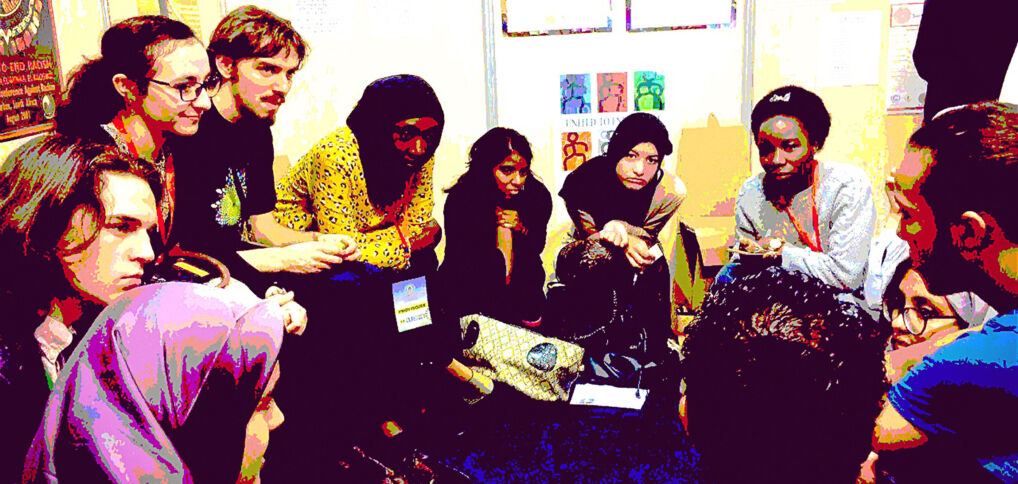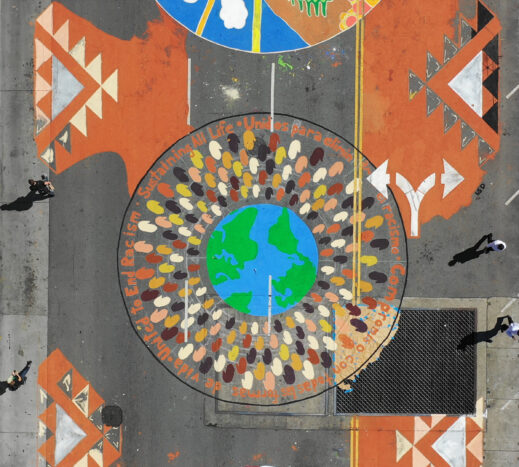
View this resource
as PDF >>
****
View this resource
in Dutch >>
****
View this resource
in French>>
****
View this resource
in German >>
****
View this resource
in Spanish>>
Key takeaways
- Young people* are powerful agents of social change. Most revolutions have been led by young people.
- Young people need accurate information about the reality of the climate crisis. They need our support to remember that they are powerful and can take action to stop climate change. Young people need us to be confident in them.
- Adults need to support the young people who are taking action. Adults can be most supportive when they can both feel proud of the work they have done as adults and support young people to try everything they want to try.
Backing young people in fighting the climate emergency
Young people are powerful agents of social change. They are playing vital roles in the climate movement. They have the power to make change. Backing young people to take action is among the most important work adults can do. Young people are a frontline community with regard to climate change—many young people, world-wide, are already living through the challenges of the climate crisis and will face it throughout their lives.
Adults can be effective allies to young activists by supporting them in what they need and ask for. They can counter the oppressive messages that young people are not fully intelligent or capable until they “grow up.” Unchallenged, young people’s oppression leaves many of them with the incorrect idea that they are not smart or powerful. Adults can stand against this oppression. They can encourage young people to think and take action. They can take young people’s leadership seriously.
It is particularly important that adults don’t “pass on” to young people the discouragement and fears we have accumulated over time. We want young people to be free to try every action they can think. They should not have to listen to our worries or our “improvements” to their ideas.

Adults can best support young people when we build real, personal relationships with them. That means reaching out to young people of every background. It means challenging the oppressive system that keep us divided. It means challenging racism, classism, sexism, and more. Young people need support when they hear hard information, when they are going through hard times, when they are facing a big challenge, or when they feel like giving up.
Communicating with young people about climate change
Young people are fully intelligent. They are capable of understanding complex ideas. It is essential that we communicate directly and honestly with them. We also get to figure out how to talk about climate change while laughing and having fun—two things that young people are especially good at.
We need to talk to young people about the realities of climate change and its consequences. It may be scary to do this. but we can’t hide this important information from them. They are going to be alive and living with the climate emergency for many more years. Almost all young people understand that things need to change and that it is important to take action against injustice.
When talking to groups, particularly groups of young people, it is helpful to do the following:
- Ask people to pair up and take turns exploring any feelings about the topic—for example, feelings of grief, fear, and numbness
- Ask them lots of questions about what they
think - Really listen to what they say
- Express appreciation; ask members of the group to appreciate each other

It is important to understand that climate change can be stopped. Hundreds of thousands of people, many of them young people, are taking action every day throughout the world. Make sure that young people have access to information about youth activism and international movements of young people—the Sunrise movement, the Extinction Rebellion, the youth climate strikes, and more. Show videos of these young people doing powerful things; these stories inspire others to act.
As adults, we sometimes try to fix or take care of everything. We often tell young people what to do. We lecture them, express our doubts, and discourage them from taking certain actions. Though understandable, this is generally not helpful. There isn’t time to get everything perfect—and it’s not necessary. We need to try everything we can think of, apologize for mistakes, and keep trying. Young people appreciate that.
Defending young people against criticism based on their age
Whenever young people dare to be powerful and speak out, there will be adults who try to shut them down. The following statements (among others) are often used to discredit their efforts:
- “Adults already told you what to say and do! So do that!”
- “You don’t have the facts right; you don’t know how it works!”
- “You’re being rude and angry; this isn’t how to make change!”
We need to recognize others’ attempts to discredit young people’s efforts, or when we ourselves discredit them. Greta Thunberg, a young Swedish climate activist, said, “The rules are not working, so it’s time to change the rules.” Young people often know how to break rules and agitate for change.
We can do the following when an adult attempts to discredit young people or attack their efforts:
- LISTEN Ask the young people how they feel after they have taken action—and listen!
- APPRECIATE them and remind them that they did great work.
- ENGAGE with the adult who criticized the action; tell them why you support the young people and their work.
We need to radically transform society in order to combat climate change—and this will take all of us. All of our skills and talents are needed. Adults and young people can act as a united front.
People often don’t organize until things are desperate—and they are desperate now. Young people understand that. When they are cared about, given accurate information, and supported—they act.
*We refer to people age 21 and under as young people.


